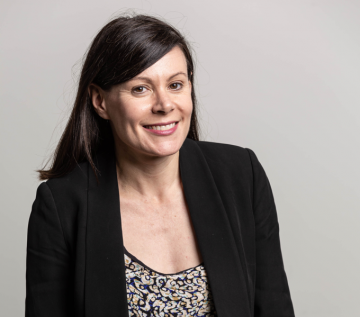MPI Colloquium Prof. Angela Morgan

Unravelling the genetic bases of childhood communication disorder
Abstract
Communication is undoubtedly one of the most important functions for the survival and connectedness of human beings. Our proficiency with communication predicts the success of our everyday social relationships, mental wellbeing, vocational achievements and overall quality of life. Despite the critical role for communication in our lives, we have much to learn about how this vital skill develops and why it goes wrong for 1 in 7 preschool children who experience a speech or language disorder. In fact, the century old profession of clinical speech pathology has only been able to assess and manage communication disorder symptoms; because we have had no idea of aetiology, prohibiting us from treating any underlying cause.
The post-genomic era is finally moving the communication disorders field forward in terms of aetiology. Work over the past decade has revealed complex genetic underpinnings for paediatric speech and language disorders, which are made up of a combination of common and rare variants. In this presentation, I will discuss recent findings from our group regarding the genetic bases of severe and persistent speech disorders in children. Findings shed light on the inheritance of speech disorder and reveal underlying biological mechanisms, highlighting future targets for precision therapies, moving the field away from a symptom-only approach to consider genetics.
Short Biography 2024
Angela Morgan is a clinical speech pathologist and speech neuroscientist. Angela’s career has focused on understanding causation, prognosis and therapies for severe speech disorders in children. Angela is passionate about the application of genomics to clinical practice and the possibility of harnessing genetic aetiologies to develop future biologically targeted speech therapies. Most recently, her team have identified a number of genes explanatory for a severe childhood speech disorder, known as childhood apraxia of speech. Her multi-disciplinary team includes speech pathologists, paediatricians, molecular biologists and psychologists working to directly translate clinical genomic findings into practice. She currently leads the National Health and Medical Research Translational Centre for Speech Disorders, a collaboration between the University of Melbourne, University College London and Max Planck Institute for Psycholinguistics, focused on improving genetic knowledge and clinical management of children with speech and language disorders.
Share this page